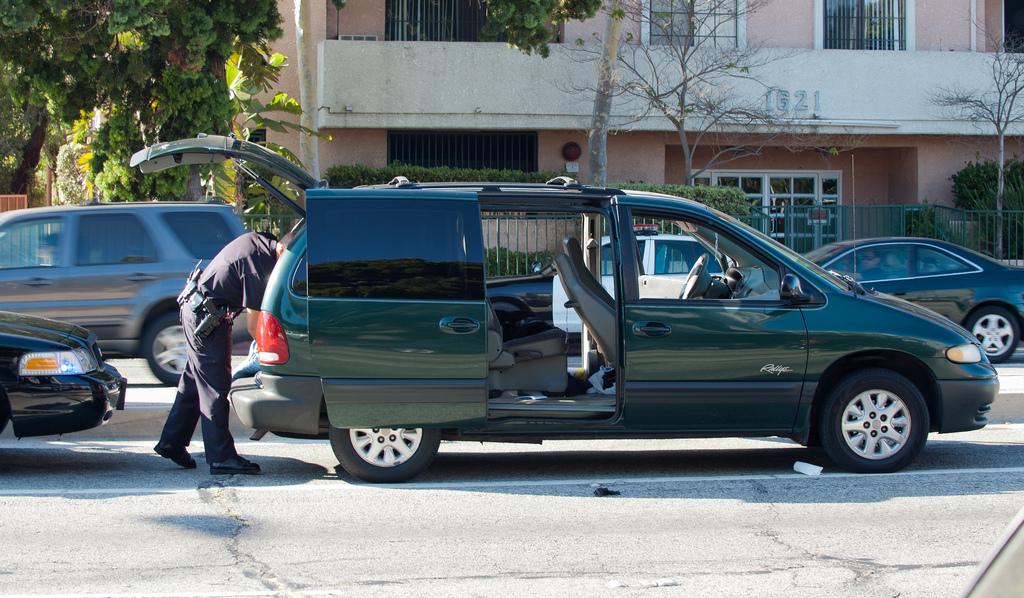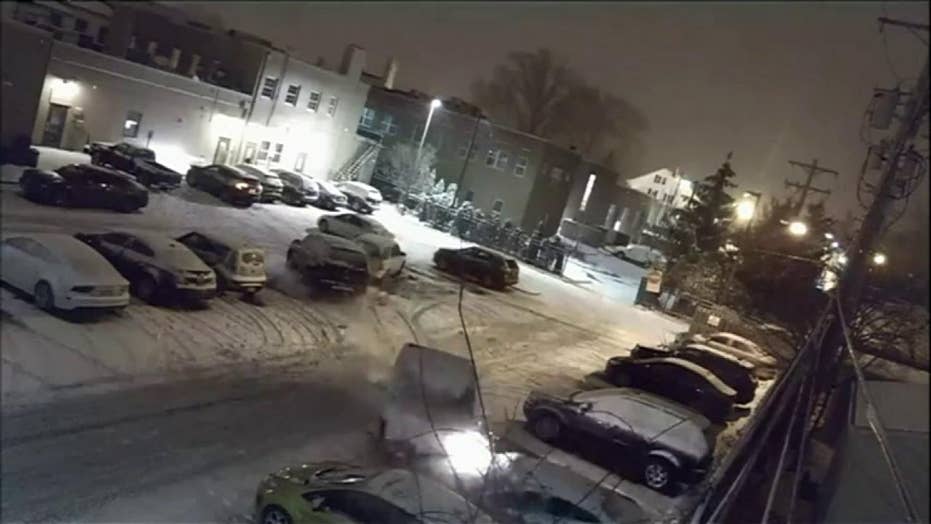Can Police Search A Parked Car

- Can Police Search Your Car Without Consent
- Can Police Search Your Car After An Accident
- Can A Cop Approach A Parked Car
Police officers can ask to search your car. One of the problems these days is that cops will make something up to give them justification to search your vehicle. If they are going to arrest you for a crime they have observed, or otherwise have probable cause to search, they do not need your permission. However, the Supreme Court ruled today in an 8-1 vote that if your vehicle is parked in your driveway or on any other private property, police are required to obtain a warrant before they can. Talk with your insurance company. It may fall under your “Comprehensive” rider. But a lot has to do with the laws of your state and how accidents like this are addressed. My truck was hit in a parking lot minor damage on the corner of the bed; I reported it to my insurance company. I had no police report.
Regarding if a legally parked car that was searched without a warrant was unconstitutional. The defendant’s vehicle was searched after he was arrested on an outstanding warrant for domestic violence.
Police testified that they searched the defendant’s car based on Mansfield Police Department protocol. As a community caretaker of the vehicle, it is Mansfield PD protocol to take inventory of the car and its contents when they tow a vehicle. The question before the Supreme Court is whether the police should have left the vehicle where it was, because it was legally parked. Cases such as this remind defendants and defense counsel of what the Illinois inventory search laws are and what is protocol for the Chicago Police Department and surrounding neighborhoods.Generally, police are constitutionally required to have a search warrant before they are allowed to search an automobile. However, a warrantless search will be upheld if it was performed when a vehicle is impounded. When an officer impounds a vehicle he is allowed to do an “inventory search”. The Supreme Court of the United States has held that there are three objectives for allowing inventory searches: (1) protection of the owner’s property; (2) protection of the police against claims of lost or stolen property; and (3) protection of the police from potential danger.


So, an officer is allowed to search an impounded vehicle without a warrant and use what they find against a defendant in a court of law.The threshold issue in considering whether the police have conducted a valid inventory search, incident to a tow, is whether the impoundment of the vehicle was proper. Three criteria must be met for a valid warrantless inventory search of a vehicle: (1) the original impoundment of the vehicle must be lawful; (2) the purpose of the inventory search must be to protect the owner’s property, to protect the police from claims of lost, stolen, or vandalized property, and to guard the police from danger; and (3) the inventory search must be conducted in good faith pursuant to reasonable standardized police procedures and not as a pretext for an investigatory search.First, the police must have a lawful reason to tow a vehicle. Lawful reasons could include vehicles parked illegally, impeding traffic, threatening public safety, or convenience.
Can Police Search Your Car Without Consent
Other examples include a case where a defendant didn’t have proof of liability insurance when they were pulled over. The Illinois code section 6–303(e) prohibits vehicles from being operated until proof of insurance is shown. Thus, the impoundment, furthered police community-caretaking functions and was reasonable under the fourth amendment.However, the fact that a defendant’s car is left unattended without a tow is not a sufficient reason for impoundment, unless the vehicle is parked illegally.
While using the outer first class touchstones, so realising this supplement a posh or perhaps not surprisingly long lasting. As well as I SIMPLY passionately advise that. Remington model 12 22 pump serial numbers. Rifle Remington Model 12.22 Rifle Serial Number can be a preferent select many people. While most persons really love currently the Rifle Remington Model 12.22 Rifle Serial Number as a lot of features associated with colors, characters, components.
In another case, evidence supported finding that police officer’s impoundment of a defendant’s vehicle was not lawful. An officer activated his lights to effectuate a traffic stop, the defendant pulled over into a school parking lot, there was no evidence that defendant’s vehicle was impeding traffic or threatening public safety and convenience, the officer was not instructed to tow the vehicle by a school employee and he did not recall seeing any signs at the entrance of parking lot that indicated parking was forbidden and unauthorized vehicles would be towed, and the officer failed to provide any evidence to support his claim that defendant’s vehicle was illegally parked. When the officer impounded the vehicle and conducted a warrantless search, it violated the defendant’s fourth amendment rights.Second as stated prior, the purpose of an inventory search is to protect the owner’s property.
By conducting an inventory of a defendant’s belongings and personal property, a preventative measure is taken so that the defendant will know if any personal items have gone missing while the vehicle is in the custody of the police. This also protects the police officer from claims of stolen property.Third, in conducting an inventory search, the police must be acting pursuant to standard police procedures. Prior to 2003, Illinois was split regarding if the police inventory procedures have to be in writing. Some districts required that the State produce evidence of “written directives or policies which outline the procedures to be followed by law enforcement officers”.
Can Police Search Your Car After An Accident
Other districts, by contrast had no requirement that the policies be in writing. Gipson, the Illinois Supreme Court decided that there is no requirement that the procedures be in writing.
Can A Cop Approach A Parked Car
They follow that the United States Supreme Court only requires that the police act in accordance with standardized department procedures when conducting inventory searches. Regardless of the lack of requirement, the Chicago Police Department does have their procedures in writing. A defendant can find the CPD’s policy and many other district policies on the police website of their neighborhood or city.With respect to the Ohio case, the car was legally parked.
It was not impeding traffic, or threatening the public in anyway. There was no reason to tow the vehicle and therefor the inventory search is not valid. The Ohio public defender said “an arrest warrant does not give officers a free pass to search a legally parked car.” If the Ohio Supreme Court allows such a search it will open the door to officers searching any parked vehicles that are in the possession of someone they detain. This approach violates a defendant’s Fourth Amendment search and seizure rights and is unquestionably unconstitutional.